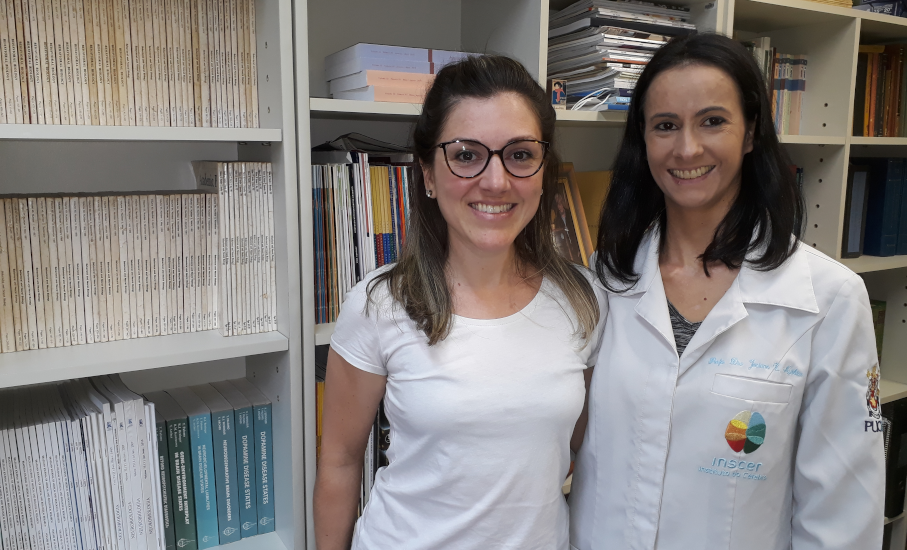Study coordinated by BraIns' Memory Center suggests that family members help mitigate traumatic memory effects
 Research project conducted by the Memory Center of the Brain Institute of RS (BraIns) has found that the presence of a family member after a traumatic memory mitigates the effects of fear and may therefore assist in the extinction of an aversive memory. The research has just been published in the US journal Proceedings of the National Academy of Sciences. The student Clarissa Penha Farias is working on her doctoral degree in the graduate program in Biomedical Gerontology, of the School of Medicine of PUCRS, under the supervision of Dr Jociane de Carvalho Myskiw.
Research project conducted by the Memory Center of the Brain Institute of RS (BraIns) has found that the presence of a family member after a traumatic memory mitigates the effects of fear and may therefore assist in the extinction of an aversive memory. The research has just been published in the US journal Proceedings of the National Academy of Sciences. The student Clarissa Penha Farias is working on her doctoral degree in the graduate program in Biomedical Gerontology, of the School of Medicine of PUCRS, under the supervision of Dr Jociane de Carvalho Myskiw.
She claims that several studies conducted all around the world point to the role of different brain regions in consolidating extinction memory, such as the prefrontal cortex, the hippocampal CA1 region and the basolateral amygdala. However, the group’s findings suggest that the consolidation of extinction with the presence of social support (a family member or a friend) is dependant upon the prefrontal cortex rather than the hippocampal CA1 region. “We’ve noticed that the cellular mechanisms and brain structures involved in extinction with and without the help of a family member are different”, Clarissa says. She explains that the idea of extinguishing a memory of fear is not about erasing it, but associating it it with a new memory.
These results demonstrate that the presence of a family member (called co-specific) in exposure therapy can help in the treatment of phobias, anxieties, posttraumatic stress, among others. “It is known that the perception of lack of social support can be aggravating symptoms of severe phobias such as PTSD, so our study suggests that the presence of a family member in exposure therapy may be helpful in the treatment of phobias, anxiety and PTSD”, Clarissa says.